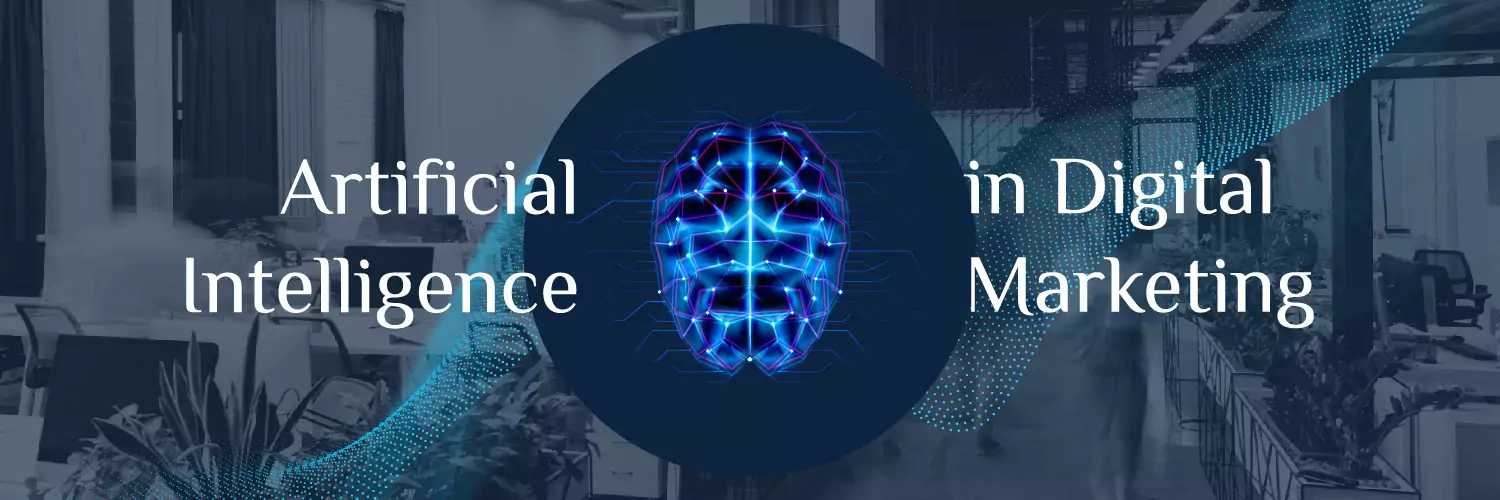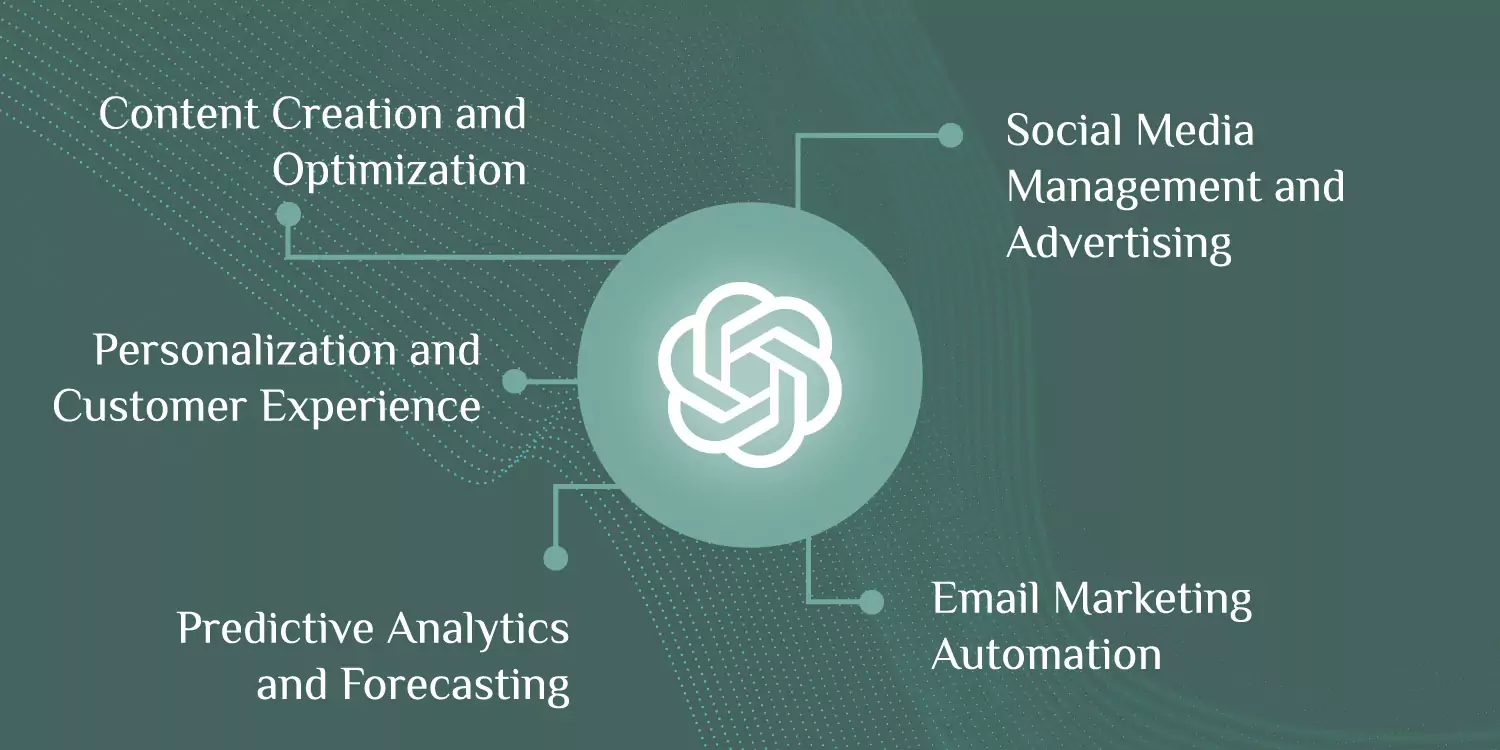Insights
Artificial intelligence, or AI, is everywhere. From search engines to email, AI is revolutionizing how we think, work, play, and even market. As AI grows more advanced, it’s having a greater impact on activities across industries.
In the world of digital marketing, AI is affecting how we automate tasks, analyze data, and personalize customer experiences. With so many opportunities, knowing where to begin your AI journey can be daunting.
In this article, we discuss some of the most common — and practical — applications of AI in digital marketing for you to adopt. Be prepared to transform how you engage with audiences to be more effective and efficient.

AI in Digital Marketing: Practical Applications
At this point, marketers worldwide have tested AI applications, but how well have they incorporated them into daily workflows? Explore applications that go deeper than “use ChatGPT to brainstorm.” (But also — feel free to do that, too!)
Content Creation and Optimization
Content creation is a time- and resource-intensive activity, but marketers need more time and resources to invest deeply in content. AI tools like ChatGPT and Jasper allow brands to streamline their content creation and optimization activities, making them easier to conduct at scale.
- AI tools can analyze top-performing content, identifying trends and keywords, ensuring relevance and engagement.
- Natural language processing (NLP) refines the tone and style to match the brand voice.
- AI in content marketing also optimizes content for SEO, boosting visibility.
- Predictive analytics suggest topics that will resonate with the audience.
- Automated editing tools enhance readability and grammar.
- AI-driven platforms schedule posts for peak times, maximizing reach.
These technologies streamline content creation, making it more efficient and effective so brands can focus on strategy while AI handles the heavy lifting.
Personalization and Customer Experience
According to Statista, 88% of marketers who use AI are leveraging it to personalize their customer experience across channels. Personalization helps tailor marketing efforts to individual preferences, enhancing the customer experience.
- Machine learning algorithms can analyze user data, resulting in customized recommendations and targeted ads.
- Chatbots, covered in more detail below, provide real-time assistance, improving customer satisfaction and retention.
- Dynamic content can adapt to user behavior and actions, creating a more relevant and engaging experience.
- Sentiment analysis gauges customer emotions, allowing brands to respond appropriately and foster loyalty.
- Personalized email campaigns, discussed below, increase open rates and conversions by addressing specific needs and interests.
This level of customization not only boosts engagement but also builds stronger relationships, driving long-term customer loyalty and brand advocacy.

Predictive Analytics and Forecasting
AI predicts future trends by analyzing vast amounts of data. Marketers use predictive analytics to forecast customer behavior and market shifts.
- Machine learning models identify patterns, enabling brands to anticipate needs and preferences. This foresight helps craft targeted campaigns and optimize budgets.
- Predictive analytics also aids in inventory management, reducing costs and improving efficiency. By forecasting demand, businesses can better align their strategies with market dynamics.
- AI-driven forecasting tools provide real-time insights, allowing marketers to make data-driven decisions quickly.
Taking a proactive approach enhances competitiveness and drives growth in the ever-evolving digital landscape.
Social Media Management and Advertising
AI-driven tools streamline social media management by automating content scheduling, analyzing engagement metrics, and identifying optimal posting times.
- Algorithms curate personalized ad campaigns, targeting specific demographics with precision.
- Machine learning models assess user interactions, refining ad placements to maximize ROI.
- Sentiment analysis tools gauge public opinion, enabling real-time adjustments to marketing strategies.
- AI also detects emerging trends, allowing brands to capitalize on viral content swiftly.
These technologies not only enhance efficiency but also foster deeper connections with audiences, driving brand loyalty and growth. Integrating AI in digital marketing transforms social media landscapes, making them more dynamic and responsive.
Chatbots and Customer Support
In an omnichannel world, customers expect always-on, real-time customer service. One way to accomplish this is with chatbots.
- Chatbots can answer common customer questions, nurture leads, engage audiences on your website or application, and encourage users to take specific actions based on their unique needs and desires.
- While chatbots are not new, AI-powered chatbots use natural language processing (NLP) to better “understand” and respond to advanced user queries. This is in contrast to traditional rule-based chatbots, which use a series of pre-selected questions and potential answers to guide a user to an action.
- With AI, chatbots can become efficient and effective over time.
Popular AI-based chatbots include Alexa and Siri, but the same premise applies to a chatbot you would put on your website. AI chatbots can improve the customer experience with personalization and authenticity by offering a more free-flowing conversation.
Email Marketing Automation
Email marketing is a great way to engage with customers and convert prospects into Clients. Using AI in email marketing activities can save time and improve performance, leading to tangible results. Many email service providers (ESPs) have AI tools embedded in them, which can help with email marketing.
- Algorithms can analyze user behavior and preferences, allowing more personalized content for improved open and click-through rates.
- Predictive analytics can determine the optimal time to send emails, which can also optimize engagement.
- Machine learning identifies patterns in customer interactions, leading to dynamic segmentation and improved campaign targeting.
- In addition to the tools embedded in the ESP, marketers can use AI to draft email copy, such as subject lines and preview text.
Together, these activities support the creation of relevant, timely content, improving conversion rates and enhancing customer retention.

What If? Challenges and Ethical Considerations
When using any technology, it’s essential to be aware of both the benefits and the challenges. Yes, AI can increase your return on investment, streamline operations, and create a better customer experience, but there are challenges — and ethical considerations — associated with using AI in digital marketing.
Data Privacy and Security
As marketing becomes more personalized, audiences and customers are increasingly concerned about data privacy and security. When using AI, be sure the tools you select follow privacy and security laws, like GDPR, and are ethically collecting, storing, and using data. The ethical use of AI in digital marketing builds trust, fostering long-term relationships of trust.
Bias and Fairness
AI outputs are only as good as the data they are trained on. Therefore, AI can unintentionally perpetuate bias, which damages customer engagement and brand reputation. Short of training new AI tools, be mindful of bias and encourage inclusivity and fairness in the use of AI in digital marketing.
Transparency and Accountability
The decision-making processes behind AI tools can be opaque, making it difficult for users to understand how outcomes are determined. Ensuring transparency and accountability in AI processes is vital to build trust.
Content Quality and Accuracy
Generative AI is effective in many ways but is still known to be flawed. In particular, it may produce inaccurate or incorrect information. In addition, generative AI does not always excel at following a brand voice. To combat these challenges, ensure a human edits the outputs of generative AI or consider using it as an idea generation tool rather than a content creation tool.
The Future State: Trends and Developments
Depending on the industry, AI will only continue to grow in prominence, streamlining mundane and tedious tasks to free people up for more strategic and innovative activities. For example, AI in the healthcare industry could improve patient communications, support with administrative tasks, make some surgeries less invasive, and more. Conversely, AI could support activities like cash flow forecasting, capital optimization, and tax preparation and analysis in finance. Finally, the possibilities for AI in manufacturing are nearly endless, ranging from optical character recognition to machine visioning to support the manufacturing process.
No matter how you use AI, it is a powerful tool at our disposal, and we look forward to seeing how it continues to impact our daily lives.
Use AI in Digital Marketing to Achieve Your Goals
AI is transforming the digital marketing landscape. By leveraging AI-driven tools and strategies, marketers can create more engaging content, deliver personalized experiences, and make data-driven decisions that drive results. From content creation and optimization to predictive analytics and chatbots, AI empowers brands to connect with their audiences on a deeper level, fostering long-term loyalty and advocacy.
As AI continues to evolve, it's crucial for marketers to stay informed about the latest trends and developments while being mindful of the ethical considerations surrounding data privacy, bias, and transparency. By embracing AI responsibly and strategically, businesses can unlock new possibilities and stay ahead in the ever-changing digital world.
If you're ready to responsibly harness the power of AI in your digital marketing efforts, our team of experts is here to help. Contact us today to learn how we can help you integrate AI into your marketing strategy and take your brand to the next level.